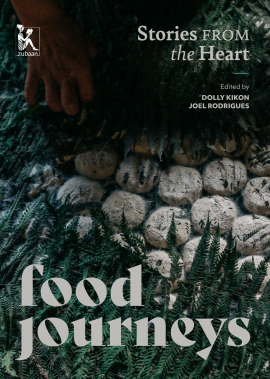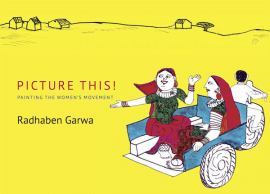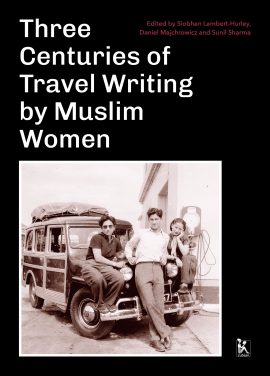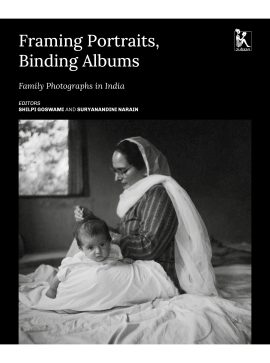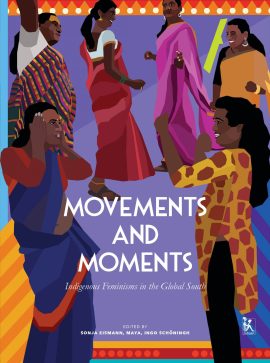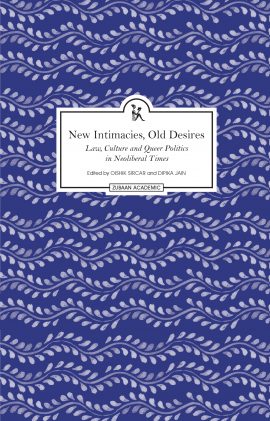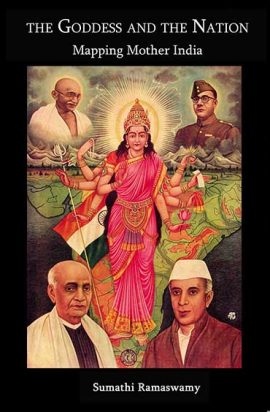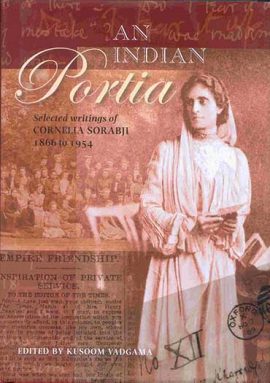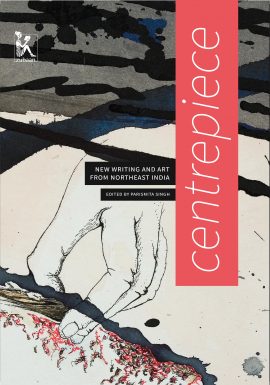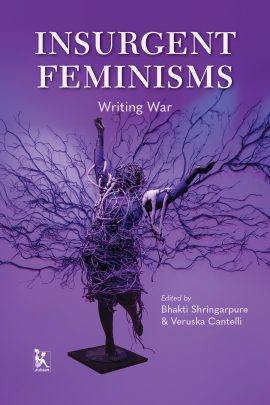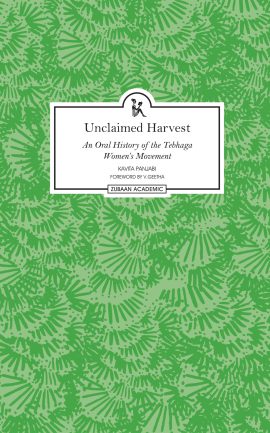No products in the cart.
Return To Shop
Log in / Sign in
Login
Register
Books, Books from the North East, Books from the North East, e-Books, New Releases, New Releases, Non-Fiction, Non-Fiction
Food Journeys: Stories from the Heart
From ₹ 895Food Journeys is a powerful collection that draws on personal experiences, and the meaning of grief, rage, solidarity, and life. Feminist anthropologist Dolly Kikon and peace researcher Joel Rodrigues present a wide-ranging set of stories and essays accompanied by recipes. They bring together poets, activists, artists, writers, and researchers who explore how food and eating allow us to find joy and strength while navigating a violent history of militarization in Northeast India. Food Journeys takes us to the tea plantations of Assam, the lofty mountains of Sikkim, the homes of a brewer and a baker in Nagaland, a chef’s journey from Meghalaya, a trip to the paddy fields in Bangladesh, and many more sites, to reveal why people from Northeast India intimately care about what they eat and consider food an integral part of their history, politics, and community. Deliciously feminist and bold, Food Journeys is both an invitation and a challenge to recognize gender and lived experiences as critical aspects of political life.
DOLLY KIKON is an anthropologist whose work focuses on the political economy of extractive resources, militarisation, migration, indigeneity, food cultures and human rights in India. She is the author of Life and Dignity: Women’s Testimonies of Sexual Violence in Dimapur (Nagaland) (2015); Living with Oil and Coal: Resource Politics and Militarisation in Northeast India (2019); Leaving the Land: Indigenous Migration and Affective Labour in India (2019); Ceasefire City: Militarism, Capitalism, and Urbanism in Dimapur (2021); and Seeds and Food Sovereignty: Eastern Himalayan Experiences (2023).JOEL RODRIGUES is the author of Seeds and Food Sovereignty: Eastern Himalayan Experiences (2023). Joel is a doctoral researcher at the Department of Social Anthropology, Stockholm University. His writings have been featured in Gastronomica, Morung Express, and ‘Raiot.in’. He has a bachelor's degree in mass media, and a master's in peace and conflict studies. His peace research work engages with law, violence, memory, food, and media. Born in Mumbai, Joel has lived in Northeast India for a decade now.
Picture This! Painting the Women’s Movement
From ₹ 750During the current COVID-19 surge we are shipping orders from Delhi once per week. Please allow 8-10 business days for delivery.
Radhaben Garva lives in a small village in Kutch. She’s an artist who has for long years documented the rural women’s movement in her area and beyond in her paintings.These unique pictures—more than 200 of them—tell stories of the involvement of women from her village, and from the Kutch Mahila Vikas Sangathan, the NGO she works with, in campaigns for women’s rights, for economic empowerment, for resistance to globalizing corporations.In one sequence of pictures, Radhaben receives a phone call inviting her to a meeting abroad, and she paints the entire journey from village to town to airport to the international destination and her first ride in an elevator. In another, she depicts the Chipko movement, in a third, the fragmentation of fields and farming activity as a result of globalization.This unusual and beautiful document provides that rare thing, a political perspective from below and a vibrant portrait of the rural women’s movement in India.Three Centuries of Travel Writing by Muslim Women
₹ 1,400When thinking of intrepid travelers from past centuries, we don’t usually put Muslim women at the top of the list. And yet, the stunning firsthand accounts in this collection completely upend preconceived notions of who was exploring the world.
Editors Siobhan Lambert-Hurley, Daniel Majchrowicz, and Sunil Sharma recover, translate, annotate, and provide historical and cultural context for the 17th- to 20th century writings of Muslim women travelers in ten different languages. Queens and captives, pilgrims and provocateurs, these women are diverse. Their connection to Islam is wide-ranging as well, from the devout to those who distanced themselves from religion. What unites these adventurers is a concern for other women they encounter, their willingness to record their experiences, and the constant thoughts they cast homeward even as they traveled a world that was not always prepared to welcome them.
Perfect for readers interested in gender, Islam, travel writing, and global history, Three Centuries of Travel Writing by Muslim Women provides invaluable insight into how these daring women experienced the world—in their own voices.
______________________________________________________________________________________SIOBHAN LAMBERT-HURLEY is Professor of Global History at the University of Sheffield. She is author of Elusive Lives: Gender, Autobiography, and the Self in Muslim South Asia; (with Sunil Sharma) Atiya’s Journeys: A Muslim Woman from Colonial Bombay to Edwardian Britain; and Muslim Women, Reform and Princely Patronage: Nawab Sultan Jahan Begam of Bhopal. She is editor (with Anshu Malhotra) of Speaking of the Self: Gender, Performance, and Autobiography in South Asia and of A Princess’s Pilgrimage: Nawab Sikandar Begum’s A Pilgrimage to Mecca.DANIEL MAJCHROWICZ is Assistant Professor of South Asian Literature and Culture at Northwestern University. He is author of The World in Words: Travel Writing and the Global Imagination in Muslim South Asia and A Journey to Mecca and London: The Travels of an Indian Muslim Woman, 1909-1910.SUNIL SHARMA is Professor of Persianate and Comparative Literature at Boston University. He is author of Mughal Arcadia: Persian Literature in an Indian Court; Amir Khusraw: The Poet of Sultans and Sufis; Persian Poetry at the Indian Frontier: Mas’ud Sa’d Salman of Lahore, and (with Siobhan Lambert-Hurley) Atiya’s Journeys: A Muslim Woman from Colonial Bombay to Edwardian Britain. He is editor (with Roberta Micallef) of On the Wonders of Land and Sea: Persianate Travel Writing.
Framing Portraits, Binding Albums: Family Photographs in India
From ₹ 875Long neglected in academic discourse in India, family photographs make a silent contribution to the histories of photography, marginality and the family. In this volume, the writers dwell on the importance of family photographs and their visual omnipresence in our daily lives.
They point out how family photographs have belonged to the ‘vernacular’ material of visual culture, more seen and lived with, less written and consciously thought about. Attempting to retrieve family photographs from a space of neglect, this volume demonstrates how they are fundamental to the microhistories of a nation and its many societies, and suggests the importance of such counterarguments to the dominant strains in an emerging discursive space.
The essays do not offer a comprehensive survey of all types of family photographs in India. Instead, they present focused insights into chosen areas of interest on the part of the writers. Collectively, they embrace the intersectionalities of gender, caste, class and regional trajectories, making the politics of representation even more layered with contestations between the historical, oral and affective memorialisation surrounding family archives and photographs. These concerns centrally inform the essays, as they accept and negotiate a terrain shared by all types of narrativisation.
______________________________________________________________________________________SHILPI GOSWAMI is an independent editor, researcher and curator with a PhD in Cultural Studies. She has been an archivist for the Alkazi Foundation for the Arts, a curator at the Kiran Nadar Museum of Art, programme manager for What About Art? for Qatar Museums, Artistic Director of Gallery Nature Morte. Shilpi has co-authored Mastering the Lens: Before and After Henri Cartier-Bresson in Pondicherry (2013), and has contributed to Allegory and Illusion: Early Portrait Photography from South Asia (2013), Unveiling India: The Early Lensmen, 1850-1910.
SURYANANDINI NARAIN is Assistant Professor in Visual Studies at the School of Arts and Aesthetics, Jawaharlal Nehru University, New Delhi. She teaches courses on Indian visual culture, photography, aesthetic theory and critical writing. She has written extensively on photography and visual culture in India, especially around themes of women, the family, the home, everyday aesthetics and studio photography.
Movements and Moments: Indigenous Feminisms in the Global South
From ₹ 600During the current COVID-19 surge we are shipping orders from Delhi once per week. Please allow 8-10 business days for delivery.
Often forgotten and seldom written into official record, protest movements and campaigns by indigenous women across the world are a vital part of our history, and our heritage. Before an understanding of environmental damage and climate change was even articulated in international forums by powerful political leaders, indigenous women knew well the importance of preserving and respecting traditional knowledge and building lives in harmony with the environment. Before the impacts of large-scale industrialization and the thoughtless exploitation of our resources became evident, it was indigenous women in small and large communities who fought to protect rivers and mountains, who created trade unions focusing on what was defined as ‘domestic’ or ‘care’ work, who argued that no matter how small, every actor in the world deserves to be valued and respected. They did not always win, and often movements faced setbacks and sabotage, but with each step they learnt how to do better the next time.This book documents a small part of these multifaceted struggles. Sourced through an open call, the stories here span centuries and locations: they come from Vietnam, Thailand, Philippines, India, Nepal, Peru, Bolivia, Brazil, Chile and Ecuador. They document individual and collective histories, reflect on the complicated and often contradictory lessons political protest has to offer, and look at moments of joy, of loss and of learning. Together, they alert us to the as yet untapped wealth of knowledge that lies in the unheard stories of indigenous women across the world.Homeward: Towards a Poetics of Space
From ₹ 550
In Homeward, Soibam Haripriya brings together writers, artists, poets and photographers to question presumptions of home, the idea of a homeland and, by extension, the nation. Articulating and imagining the meanings of home, one's own or those of others, is often an act of confronting one's vulnerability. Metaphorical or real, homes are necessarily messy worlds that inevitably collide and telescope into each other as their geographical boundaries often intersect and overlap. The contributors to this volume, in their different ways, upend the idea of home as a unit of stability, familiarity and familial-ity, emptying out its significance as a place of nostalgic refuge to which one can always return. The ostensibly common universal idea of home is often unhinged, they show, by the conditions of violence that underpin relations within that space. Focusing largely on the Northeastern region, often bound together in some way, ethnically and geographically, this anthology illuminates how political climate as well as geographic sites transform homes. How then may we re-imagine home when its significance as a space and place of refuge loses meaning. Homeward engages with the boundaries and constraints imposed by messy cartographies and attempts to evoke a poetics of space through the act of writing.
Contributors: Agastaya Thapa | Amorette Grace Lyngwa | Amrapali Basumatary | Bhagwati Prasad | Gayatri Thangjam | Janice Pariat | Kumam Davidson Singh | Lapdiang Artimai Syiem | Leki Thungon | Ma Thida | Malsawmi Jacob | Mamang Dai | Mouma Mog | Pandora | Parismita Singh | Prashansa Gurung | Priyadarshini Moirangthem Chanu | Rubani Yumkhaibam | Rongnyoo Lepcha | Mongfing Lepcha | Shalim M Hussain | Soibam Haripriya | Thejakhrienuo "Thej" Yhome | Vishü Rita Krocha
SOIBAM HARIPRIYA is a poet and researcher. Her work has appeared in several anthologies including Centrepiece: New Writing and Art from Northeast India (2017), published by Zubaan, 40 Under 40: An Anthology of Post-Globalisation Poetry (2016) and A Map Called Home (2018). She has also been published in Muse India (May-June 2019), Poetry at Sangam (July 2019) and the Sahitya Akademi journal, Indian Literature. She is presently a postdoctoral fellow at the Department of Conflict and Development Studies, Ghent University, Belgium.
Select format
This product has multiple variants. The options may be chosen on the product page Contributors: Agastaya Thapa | Amorette Grace Lyngwa | Amrapali Basumatary | Bhagwati Prasad | Gayatri Thangjam | Janice Pariat | Kumam Davidson Singh | Lapdiang Artimai Syiem | Leki Thungon | Ma Thida | Malsawmi Jacob | Mamang Dai | Mouma Mog | Pandora | Parismita Singh | Prashansa Gurung | Priyadarshini Moirangthem Chanu | Rubani Yumkhaibam | Rongnyoo Lepcha | Mongfing Lepcha | Shalim M Hussain | Soibam Haripriya | Thejakhrienuo "Thej" Yhome | Vishü Rita Krocha
SOIBAM HARIPRIYA is a poet and researcher. Her work has appeared in several anthologies including Centrepiece: New Writing and Art from Northeast India (2017), published by Zubaan, 40 Under 40: An Anthology of Post-Globalisation Poetry (2016) and A Map Called Home (2018). She has also been published in Muse India (May-June 2019), Poetry at Sangam (July 2019) and the Sahitya Akademi journal, Indian Literature. She is presently a postdoctoral fellow at the Department of Conflict and Development Studies, Ghent University, Belgium.
New Intimacies, Old Desires: Law, Culture and Queer Politics in Neoliberal Times
From ₹ 960
In the last 15 years, queer movements in many parts of the world have helped secure the rights of queer people. These moments have been accompanied by the brutal rise of crony capitalism, the violent consequences of the ‘war on terror’, the hyper-juridification of politics, the financialization/managerialization of social movements and the medicalization of non-heteronormative identities/practices. How do we critically read the celebratory global proliferation of queer rights in these neoliberal times?This volume responds to the complicated moment in the history of queer struggles by analysing laws, state policies and cultures of activism, to show how new intimacies between queer sexuality and neoliberalism that celebrate modernity and the birth of the liberated sexual citizen, are in fact, reproducing the old colonial desire of civilizing the native. By paying particular attention to the problematics of race, religion and class, this volume engages in a rigorous, self-reflexive critique of global queer politics and its engagements, confrontations, and negotiations with modernity and its investments in liberalism, legalism and militarism, with the objective of queering the ethics of our queer politics.
Select format
This product has multiple variants. The options may be chosen on the product page The Goddess and the Nation: Mapping Mother India
From ₹ 600
The Goddess and the Nation charts the pictorial life and career of Bharat Mata, 'Mother India,' the Indian nation imagined as mother/goddess, embodiment of national territory, and unifying symbol for the country's diverse communities. Soon after Mother India's emergence in the late nineteenth century, artists began to incorporate the map of India into her visual persona. The images they produced enabled patriotic men and women in a heterogeneous population to collectively visualize India, affectively identify with it, and even become willing to surrender their lives for it.Combining visual studies, gender studies, and the history of cartography, The Goddess and the Nation offers a rigorous analysis of Mother India's appearance in painting, print, poster art, and pictures from the late nineteenth century to the present. By exploring the entanglement of the scientifically mapped image of India and a (Hindu) mother/goddess, Sumathi Ramaswamy reveals Mother India as a figure who relies on the British colonial mapped image of her dominion to distinguish her from the other goddesses of India, and to guarantee her novel status as embodiment, sign, and symbol of national territory. Providing an exemplary critique of ideologies of gender and the science of cartography, Ramaswamy demonstrates that images do not merely reflect history, they actively make it.
Select format
This product has multiple variants. The options may be chosen on the product page An Indian Portia: Selected Writings of Cornelia Sorabji 1866 to 1954
₹ 1,200
Cornelia Sorabji was a social reformer, an author and the first woman to practise law in India and Britain. By the time poor sight ended her work in India, she had helped many hundreds of wives, widows and orphans. She also successfully organized a League for Infant Welfare, Maternity and District Nursing.Her writings provide a priceless and fascinating documentation of one of India's most outstanding women of the nineteenth and twentieth centuries. Her noble career and valuable archives have left behind a heritage to the people of India and their causes. Her truly extraordinary life of dedication to public service, evident from her writings and ceaseless hard work deserve to be acknowledged and publicised. This book achieves both.
Add to cart
Books, Books from the North East, Books from the North East, e-Books, Feminism In India Recommends, Fiction, New Releases, Non-Fiction
Centrepiece: New Writing and Art from Northeast India
From ₹ 500
This book brings you a wealth of stories, in words and images, from a part of India known as the Northeast, a term that is widely contested for the ways in which it homogenizes a region of great diversity. It is also a term that has come to be a marker of identity and solidarity by many who are of the region. Here, 21 writers and artists look at the idea of ‘work’ — from street hawking to beer brewing, from mothering to dung collection — and describe their lives or those of others with humour and compassion. Parismita Singh’s wonderful compilation of the works of women asks: what are the different ways of telling a story? What if we were to attempt these tellings through poetry and portraits and essays, older traditions like textile art and applique and new genres like hashtag poetry tapped into a smartphone? Where would it take us, what would the world look like?______________________________________________________________________________________
Select format
This product has multiple variants. The options may be chosen on the product page PARISMITA SINGH is a writer, graphic novelist and educationist. Her graphic novel The Hotel at the End of the World was shortlisted for the Shakti Bhatt First Book Award (2009-10). She helped conceptualise the Pao Anthology of Comics. Her publications include graphic novels for children Mara and the Clay Cows, Crab Chronicles and Fat King Thin Dog. She has been working on a primary school education project in Assam with the NGO Pratham since 2009.
Contributors: Zubeni Lotha | Minam Apang | Alyen Leeachum Foning | Aheli Moitra | Soibam Haripriya | Gertrude Lamare | Rini Barman | Nitoo Das | Thingnam Anjulika Samom | Parismita Singh | Dolly Kikon | Ayangbe Mannen | Aungmakhai Chak | Jacqueline Zote | Meena Laishram | Prashansa Gurung | Shreya Debi and Bilseng R Marak | Mona Zote | Nabina Das | Mamang Dai | Sanatombi Ningombam | Kundo YumnamInsurgent Feminisms: Writing War
From ₹ 675
Insurgent Feminisms: Writing War brings together ten years of writing published in Warscapes magazine through the lens of gender and advances a new paradigm of war writing. War is always, ultimately, fought upon the backs of women, often under the pretense of saving them. Yet, along the way, the brutalities unleashed on women during wartime remain relentless. In this collection, insurgency emerges in the raw and meticulous language of witnessing, and in the desire to render the space of conflict in radically different ways. There are no paeans to courageous soldiers here, nor pat nationalist rhetoric, nor bravado about saving lives. These perspectives on war come out of regions and positions that defy stereotypical war reportage or the expected war story. They disobey the rules of war writing and do not subordinate themselves to the usual themes and tropes that we have become so used to reading.Insurgent Feminisms comprises reportage, fiction, memoir, poetry and conversations from over sixty writers and includes contributions by Nathalie, Handal, Anne Nivat, Ubah Cristina Ali Farah, Suchitra Vijayan, Chika Unigwe, Bélen Fernández, Uzma Falak, Otoniya Juliane Okot Bitek, Gaiutra Bahadur, Robtel Neajai Pailey, Sumana Roy and Lina Mounzer, among several others.
BHAKTI SHRINGARPURE co-founded Warscapes magazine in November 2011 and it has now transitioned into the Radical Books Collective.VERUSKA CANTELLI is a writer, translator and editor who teaches interdisciplinary studies at Champlain College in Vermont, USA.
Select format
This product has multiple variants. The options may be chosen on the product page BHAKTI SHRINGARPURE co-founded Warscapes magazine in November 2011 and it has now transitioned into the Radical Books Collective.VERUSKA CANTELLI is a writer, translator and editor who teaches interdisciplinary studies at Champlain College in Vermont, USA.
Unclaimed Harvest: An Oral History of the Tebhaga Women’s Movement
From ₹ 795
1943: As the British Empire draws to a close, the state of Bengal is just emerging from the grip of famine. Exploited mercilessly by feudal landlords, landless peasants rise in protest and launch a movement in 1946 to retain two-thirds of the grain they harvest - Tebhaga.More than 50,000 women participated in this movement: one whose history and tragic end - in the crossfire between state violence and revolutionary armed struggle - became a legend in its time. Yet in the written history of Tebhaga, the full-fledged women's movement that they forged has never featured.In this authoritative study, based on interviews and women's memories, Kavita Panjabi sets the balance right with rare sensitivity and grace. Using critical insights garnered from oral history and memory studies, Panjabi raises questions that neither social history nor left historiography ask. In doing so, she claims the past for a feminist vision of radical social change. This account of the transformation of the struggle is unique in feminist scholarship movements.
Select format
This product has multiple variants. The options may be chosen on the product page Contact Us
© Zubaan 2019. Site Design by Avinash Kuduvalli.
Payments on this site are handled by CCAvenue.

